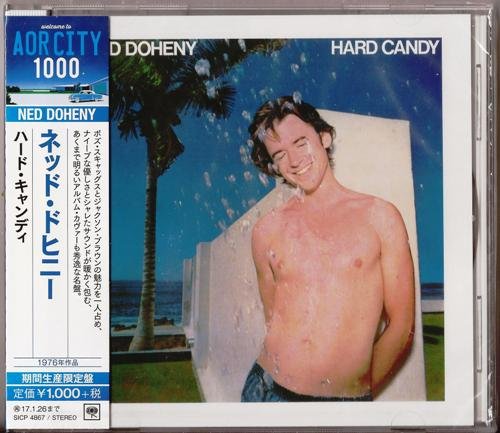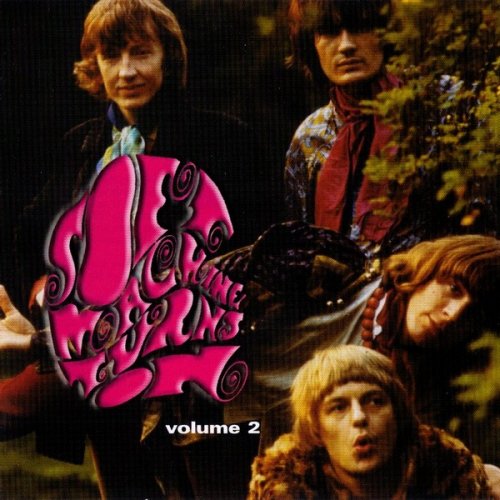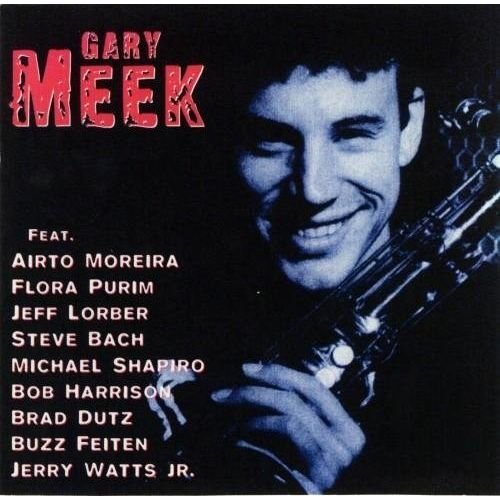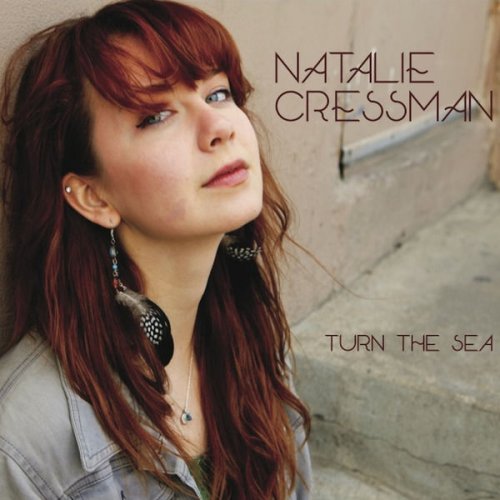Ned Doheny - Hard Candy (1976) [2016 AOR City 1000]

Artist: Ned Doheny
Title: Hard Candy
Year Of Release: 1976 [2016]
Label: Sony Records Int'l [SICP-4867]
Genre: Soft Rock, AOR
Quality: FLAC (*tracks + .cue, log, scans)
Total Time: 00:36:18
Total Size: 254 mb (+3%rec.)
WebSite: Album Preview
Ned Doheny’s Hard Candy, originally released in 1976, is widely considered the finest blue-eyed soul album of all time. Produced by the legendary Steve Cropper, it featured a veritable who’s-who of the Laurel Canyon soft-yacht sound (JD Souther, The Eagles, Linda Ronstadt, the entire horn section for Tower of Power!) yet bombed mysteriously. It’s been a cult record since.Title: Hard Candy
Year Of Release: 1976 [2016]
Label: Sony Records Int'l [SICP-4867]
Genre: Soft Rock, AOR
Quality: FLAC (*tracks + .cue, log, scans)
Total Time: 00:36:18
Total Size: 254 mb (+3%rec.)
WebSite: Album Preview
Ned Doheny recently told Wax Poetics, “To tell you the truth, my family had gotten a lot of celebrity at one point, and it did not do us any good. Everybody was very leery of fame after that.” He’s been making great pop music for over four decades, but you may never have heard of Ned Doheny or his 1976 Columbia album Hard Candy. To those well-versed in true crime histories, the name may ring a bell for a different reason, one that explains his family’s fear of the spotlight.
In 1929, an oil tycoon met a grisly end, found dead along with his male secretary in what the papers called a murder-suicide. It has been long assumed that the wealthy family kept the truth out of the news, that the tycoon was having an affair with his male secretary and the lovers were killed by a humiliated wife. The Beverly Hills mansion where the men died has since become frequently used for television shoots, including episodes of “Murder, She Wrote.”
The tycoon’s name was Ned Doheny. This was the troubled pedigree of a singer-songwriter born with both the proverbial silver spoon and a dark family history. Doheny may have felt he had more to prove than the average Laurel Canyon folkie, that his recording contract wasn’t just the result of an influential family whose name emblazoned a street in Beverly Hills. Critic Robert Christgau suggested as much in his dismissive review of 1973’s Ned Doheny. The Asylum album is a flawed debut, but his talent was clear, from catchy songwriting to deft guitar playing that swung even with his lessons with a classical guitarist. What Doheny needed was the right alchemy, the right beat. This came in an unlikely transformation from folk to funk.
White soul, that is. In 1974, Doheny met Hamish Stuart, one of the funky Scots from the Average White Band. Doheny wrote two of his most celebrated early songs with Stuart. “What Cha’ Gonna Do For Me” went on to be Doheny’s biggest chart success, albeit in the 1981 version by Chaka Khan. A demo of “A Love of Your Own” came to the attention of Steve Cropper and Tower of Power, and before he knew it, this Lauren Canyon also-ran had the support of classic rhythm and blues professionals.
Booker T. and the M.G.’s guitarist Steve Cropper produced Doheny’s next two solo albums, with backing vocalists that included Linda Ronstadt and members of the Eagles. Despite that lineup, these are soulful records that blend the two dominant pop sounds of the time: easy listening folk-rock and disco. Doheny simplified his lyrics, which on his debut could get pretentious, to the minimal vocabulary of the pop song. The music behind those lyrics was richer than at first glance. Cropper gave Doheny a blue-eyed soul funk that took advantage of his voice and guitar for a deceptively light groove that delivered simple lyrics about love.
“Get It Up for Love” leads Hard Candy as well as Numero Group’s Separate Oceans anthology of Doheny’s music, and with good reason. It’s a manifesto of what he does best. An impressionistic synthesizer wash announces what seems to be a futuristic, decadent soundscape. But Doheny’s acoustic rhythm guitar comes in for counterpoint. This intro pits smooth El Lay bombast against the simplicity of that guitar and a confident disco beat. “It’s a tricky situation/ Hard to say just what the outcome will be,” which could describe Doheny’s music and his career. This is the kind of crossover music that broke for Boz Scaggs and Silk Degrees in that same Bicentennial year, but with a difference. Scaggs’ vocals were affected, the sound of a white man pretending to be a soul crooner. Doheny’s phrasing was more Todd Rundgren than Percy Sledge, and he used his distinct voice to work with, not against, his band’s slow disco rhythms. Ironically, the record-buying public preferred Silk Degrees, now a dollar-bin staple, while original pressings of Hard Candy have become a scarce and valuable collectible.
In 1976, Columbia wasn’t ready to release something as suggestive as “Get it Up for Love” as a single. Instead, Columbia tried to make a single out of “If You Should Fall,” a bouncy number with a cheesy walking keyboard intro, but whose lead guitar (by Doheny) looks forward to Steely Dan’s Gaucho. Soul horns support the song’s irresistible chorus. Doheny’s first album had some phrasing that strained for significance, but Cropper encouraged not meaning but rhythm. Listen to the gentle percussion of his phrasing of “leave you hangin’ by a heartbeat,” clipping that first syllable “heart” and extending the “bee-eat” like a sophisticated teenybopper who plays at simplicity to lure his prey.
Hard Candy leads with its two best tracks, but the rest of the album is solid blue-eyed soul. “Each Time You Pray” sublimates the biblical aspirations of his debut’s “Lashambeaux” into a pop song that is nearly divine, “I can read between the grooves” a neat metaphor for a search for the meaning of love in a hit record. The acoustic and bass intro to “When Love Hangs in the Balance” changes the pace with an easy ballad. “A Love of Your Own” was another potential single, and has been covered even more than “Get It Up for Love.“ The sooner you give, the sooner you get/ A Love of your own” seems to follow the young prospective love of the A-side closer. “I’ve Got Your Number” seems to foreshadow his stalled career with biblically toned lines like. “To be delivered or forsaken/ It’s not for me to say.”
“Sing to Me” is the lighter version of Boz Scagg’s “Lowdown,” with a tropical counterpoint near the end that places this album squarely in a sub-genre that is as commercially viable as it is maligned: yacht rock. Numero Group co-founder Ken Shipley prefers the term “marina pop,” but whatever you call it, you wonder why radio resisted. Songs like “If You Should Fall” sound just like the kind of song you’d hear on ’70s Top 40 radio and remember fondly decades later. But Hard Candy flopped, and Doheny’s excellent follow-up, Prone, was never even released in the US. It was released in Japan, where he amassed a loyal following.
I don’t always buy the hype behind the lost classics that Numero Group sells, and when I first heard Separate Oceans and “Get It Up for Love,” it didn’t click. Now I can’t stop listening to Ned Doheny. If you love ’70s pop but are tired of hearing the same radio staples for the millionth time, discover the ’70s all over again with Hard Candy.
Tracks:
01. Get It Up For Love (4:47)
02. If You Should Fall (3:38)
03. Each Time You Pray (3:40)
04. When Love Hangs In The Balance (5:14)
05. A Love Of Your Own (3:49)
06. I've Got Your Number (3:17)
07. On The Swingshift (3:06)
08. Sing To Me (3:39)
09. Valentine (I Was Wrong About You) (5:07)
![Ned Doheny - Hard Candy (1976) [2016 AOR City 1000]](https://www.dibpic.com/uploads/posts/2023-06/1687978594_nd-b.jpg)

![FŒHN - Soleil de Minuit (2026) [Hi-Res] FŒHN - Soleil de Minuit (2026) [Hi-Res]](https://www.dibpic.com/uploads/posts/2026-02/1770357244_gm1m1pna2mo8k_600.jpg)


![Oulu All Star Big Band, Ingá-Máret Gaup-Juuso and Jukka Eskola - Davvi Oktavuohta - Pohjoinen yhteys (2026) [Hi-Res] Oulu All Star Big Band, Ingá-Máret Gaup-Juuso and Jukka Eskola - Davvi Oktavuohta - Pohjoinen yhteys (2026) [Hi-Res]](https://www.dibpic.com/uploads/posts/2026-02/1770364798_k6yo0dxz10jkv_600.jpg)


![Gal Golob - Gal Golob Trio Live at Jazz Cerkno (Live) (2025) [Hi-Res] Gal Golob - Gal Golob Trio Live at Jazz Cerkno (Live) (2025) [Hi-Res]](https://img.israbox.com/img/2026-02/09/0sr1cx835g04x8g6nfpgvtips.jpg)
![Richie Beirach - Jazz Adagio (2015) [Hi-Res] Richie Beirach - Jazz Adagio (2015) [Hi-Res]](https://www.dibpic.com/uploads/posts/2026-02/1770282211_rbja500.jpg)